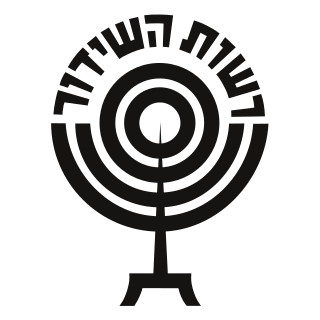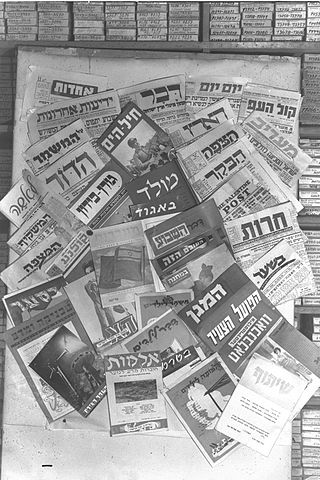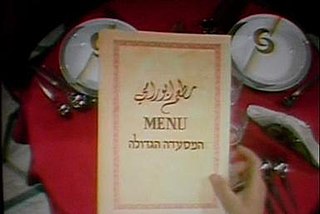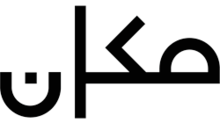
The Arab world, formally the Arab homeland, also known as the Arab nation, the Arabsphere, or the Arab states, comprises a large group of countries, mainly located in West Asia and North Africa. While the majority of people in the Arab world are ethnically Arab, there are also significant populations of other ethnic groups such as Berbers, Kurds, Somalis and Nubians, among other groups. Arabic is used as the lingua franca throughout the Arab world.

Al Arabiya is a Saudi state-owned international Arabic news television channel. It is based in Riyadh and is a subsidiary of MBC Group.

Wadi is the Arabic term traditionally referring to a river valley. In some instances, it may refer to a wet (ephemeral) riverbed that contains water only when heavy rain occurs.

The Arab citizens of Israel are the country's largest ethnic minority. They are formerly, or are descended from, the Arab citizens of British Mandatory Palestine. In Arabic, they are colloquially referred to as either 48-Arabs or 48-Palestinians, denoting the fact that they have remained in Israeli territory since the Green Line was agreed upon between Israel and the Arab countries as part of the 1949 Armistice Agreements. Most prefer to be identified as Palestinian citizens of Israel. International media outlets often use the term "Arab-Israeli" or "Israeli-Arab" to distinguish Israel's Arab citizens from the Palestinian Arabs residing in the Israeli-occupied territories.
Children's interest channels are television specialty channels that present children's interest content.

The Israel Broadcasting Authority was Israel's public broadcaster from 1948 to 2017, succeeded by the Israeli Public Broadcasting Corporation.

Television in Israel refers to television broadcasting services in the State of Israel, inaugurated on March 24, 1966. Initially, there was one state-owned channel, operated jointly by the Israel Broadcasting Authority and the Israeli Educational Television. In 1986, a second state-regulated channel was launched. This channel became a state-regulated commercial channel in 1993. An additional commercial channel was introduced in 2002, followed by the introduction of three commercial niche channels: an Israeli Russian-speaking channel, a channel of Israeli popular music and an Arabic-speaking channel. Colour transmissions were introduced gradually around 1977 and 1979. Multichannel cable television service became available to subscribers gradually since 1989, although illegal cable TV stations were present in the big cities during the 1980s. Satellite-based multichannel service has been available since 2000.

The Israeli population is linguistically and culturally diverse. Hebrew is the country's official language, and almost the entire population speaks it either as a first language or proficiently as a second language. Its standard form, known as Modern Hebrew, is the main medium of life in Israel. Arabic is used mainly by Israel's Arab minority which comprises about one-fifth of the population. Arabic has a special status under Israeli law.

The Abraham Initiatives is a non-profit organization based in Lod (Israel), New York City and London. Named after the common ancestor of both Jews and Arabs, Abraham. According to its website, it "strives to fulfill the promise of full and equal citizenship and complete equality of social and political rights for Israel’s Jewish and Arab citizens".

Al-Alam is an Arabic news channel broadcasting from Iran and owned by the state-owned media corporation Islamic Republic of Iran Broadcasting (IRIB).

There are over ten different languages in the Israeli media, with Hebrew as the predominant one. Press in Arabic caters to the Arab citizens of Israel, with readers from areas including those governed by the Palestinian National Authority. During the eighties and nineties, the Israeli press underwent a process of significant change as the media gradually came to be controlled by a limited number of organizations, whereas the papers published by political parties began to disappear. Today, three large, privately owned conglomerates based in Tel Aviv dominate the mass media in Israel.

Channel 33 was an Israeli Arabic-language free-to-air television channel, operated by the Israel Broadcasting Authority (IBA), which was primarily designated for Arabic-speaking viewers.

HaMis'ada HaGdola was an Israeli sitcom, produced by the Arabic department of Channel 1, running between 1985–1988, every Shabbat evening. The series had great success both in Israel and in neighbouring countries like Cyprus, Turkey and in the Arab World. During its original run, it was considered the most popular Israeli TV show, both in Israel and the Arab World.

Al Mayadeen is a Lebanese pan-Arabist satellite news television channel based in the city of Beirut. Launched on 11 June 2012, it has news reporters in most of the Arab countries. In the pan-Arabist television news market, it competes against Qatar-owned Al Jazeera and Saudi-owned Al Arabiya, and also against Sky News Arabia and BBC News Arabic. At the time it was founded, most of the channel's senior staff were former correspondents and editors of Al Jazeera.
Israelization or Israelisation, also called Israelification, is a term in sociology, study of culture, and politics of Israel that refers to the processes occurring among minority groups in Israel. A process in which minority groups adopt, at various levels, the lifestyle, language, culture, political and other characteristics of the dominant group in Israel – Israeli-born secular Jews.

The New Arab or Al-Araby Al-Jadeed is a London-based pan-Arab news outlet owned by Qatari company Fadaat Media. It launched an Arabic-language website in March 2014 and an Arabic language daily newspaper in September 2014. The English version of its website is The New Arab.
Al Jazeera Arabic is a Qatari state-owned Arabic-language news television network. It is based in Doha and operated by the Al Jazeera Media Network, which also operates Al Jazeera English. It is the largest news network in the Middle East and North Africa region. It was founded in 1996 by the then Emir of Qatar Sheikh Hamad bin Khalifa Al Thani.

The Israeli Public Broadcasting Corporation is the national broadcaster of Israel. It carries the blanket branding Kan in Hebrew and Makan in Arabic. Its news division, Kan News, is the third biggest brand in Israeli newscasting, after HaHadashot 12 and Channel 13 News.

Gadeer Kamal-Mreeh is an Israeli Druze politician and journalist. She became the first Druze woman to anchor a Hebrew-language news program on Israeli television in 2017. In April 2019, she was elected to the Knesset as a member of the Blue and White alliance, making history as the first Druze woman to become a Member of the Knesset. She was subsequently elected to the Knesset as part of the Blue and White alliance in the September 2019 and March 2020 elections. She left Blue and White on 29 March 2020 and joined Yesh Atid. In June 2021, Kamal-Mreeh became the Jewish Agency's first Druze emissary to the U.S., based in Washington D.C.
















